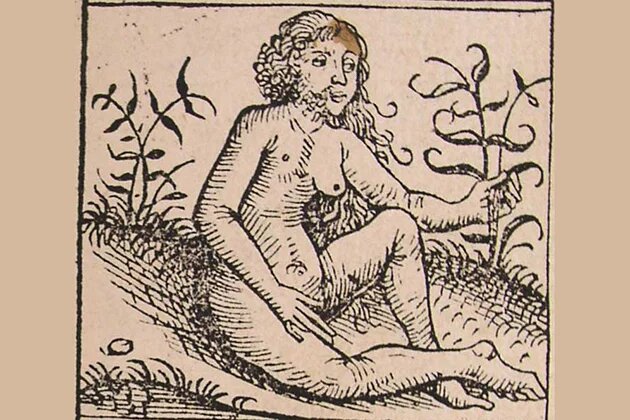
Nature is a thought-terminating cliché. If someone defends his idea by referring to “nature“, the discussion is fast over, as nature seems to be an unequivocal source of authority. But what if a state argues with ”nature“ in order to regulate gender and sexual orientation?
Unfortunately, nature is often invoked by political powers and religious groups in order to legitimize their behaviour and to consolidate their power. In Lebanon, as well as in many other states, ”nature“ is employed to justify the persecution of homosexuality. In article 534 of the Lebanese Penal Code, homosexuality is considered as an “intercourse against nature“. Civil society actors have long been criticizing the text of the law and its arbitrary interpretation of the concept of nature. With “the manufacturing of rights”, Council, Legal Agenda and Ashkal Alwan now launched a pluri-disciplinary inquiry on what nature is, in cooperation with Heinrich Böll Foundation Beirut.
Taking a closer look, it is not at all definite what is in accordance with nature and what is not. As it was said in the introduction of the conference: When trees blossom and bear fruit out of season, when there is hail in summer or warm temperatures in winter – this is not the norm but this is the nature.
Experts of different disciplines, academics and artists, took to dissecting the concept of nature that is imbued with multiple and even contradictory meanings used to establish and defend societal norms. The participants from Kenya, India, France, the United States, South America and Lebanon shared legal cases as well as historical, fictional and speculative approaches that refer to nature – presented in form of films, speeches and audio records.
On the ambiguity of nature
Nature in its classical sense is the source of life. We have to protect our environment, if we want to live some more years on Planet Earth. During the colloquium, experts explained the power of nature, the positive and negative externalities natural events have on the environment in other parts of the world. The participants discussed also the impact of armed conflicts on the environment and attributed the nature human traits by raising questions. Do we need an International Court for Crimes against Nature? Or: in what way is it legitimate to talk of a “climate genocide“?
This positive understanding of nature as source of life is contrasted by the presentation of the ambiguous relation between “nature and culture“. In this interpretation, nature is depicted as the opposite of civilization. Especially colonial powers justified their harmful behavior towards other societies by claiming they were “civilizing” nature, a concept that served to justify oppression, wars and even genocides. To have articles in the penal code that refer to non-procreative intercourse as “contra naturam” is, thus, in many states part of the colonial heritage, be it from French, British or Portuguese colonialism. Yet also here, there is no definition of “nature”.
Gender categories : a natural order or a social construct ?
The unclear definition of nature in the Lebanese Penal Code which was also exposed by a Lebanese Court was proven by the case study of a transwoman defendant who was accused for ”intercourse contrary to nature“. In fact, the Court failed to define the term contra naturam in the context of a transsexual person: Is it more indecent for a transsexual - who is considered to be a woman in the society - to have sexual relations with a man or with a woman? In its verdict, the judge outlined the contradiction of the fact that a human being created by nature, could be considered as behaving ”against nature“. With this judgment, the Court neutralizes the “nature“ criteria. This case study points at the absence of a legal document in Lebanon that defines what “against nature” means with regards to the law.
It also questions the objectivity of nature and reveals in what way nature became a paradigm, a system of beliefs that needs to be questioned and is unbearable in a legal context. Therefore, arguing that intercourse in a same-sex relation is an act contra naturam reflects in particular traditional values that prohibit non-reproductive sexual orientations. Beirut or Bogota – invoking nature in legislative texts turns out to be an international phenomenon. Separated by geography, culture, and religion the two women in Carlos Motta’s film „Deseos“ both face the consequences of engaging in same sex relations. The participants of the colloquium uncover that the nature’s authority is based on a religious morality. Furthermore, they questioned the legitimacy of a state to interfere with the sexuality and thereby with the individual freedom of its citizens.
During her lecture, French writer Emilie Notéris breaks with this paradigm of nature and uses fiction to imagine a world without gender categories. In the fictional world of ”Another Earth“, gender is troubled as the binaries are rejected and the classical gender categories do not exist anymore. Just like the whole colloquium, the text reveals in what way the paradigm of nature hides the reality of socially constructed gender and shows the importance of rethinking the concept of nature.
With free minds towards further reflections
After three intensive days of scientific, political and philosophical reflections on what nature consists of, it seems that there is no unnatural without the natural, and that we therefore need to re-think and question the paradigms of the concept of nature unmasked by the colloquium. It created awareness for the no longer acceptable criminalization of homosexuality as a crime ”contra naturam“, as it showed the missing and unclear definition of the term ”nature“.
And it proved: re-thinking gender(s) is possible. We just have to free our minds.